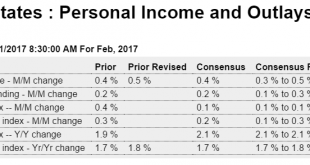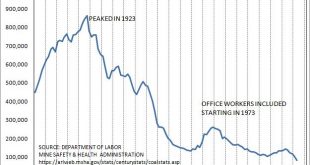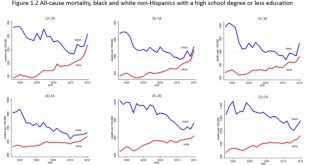download whole issue Economic policy in the Trump Era 2Dean Baker download pdf Major miscalculations: globalization, economic pain, social dislocation and the rise of Trump 13William Neil download pdf Trumponomics and the developing world 29Jayati Ghosh download pdf Nature abhors a vacuum: sex, emotion, loyalty and the rise of illiberal economics 35Julie A. Nelson download pdf Is Trump wrong on trade? A partial defense...
Read More »Personal income and spending, Consumer sentiment, Atlanta Fed
Trumped up expectations are fading a bit while ‘hard data’ continues to fade. And note the real disposable personal income chart which continues its deceleration that began when oil capex collapsed: Highlights A second month of weak spending on services pulled down on consumer spending which could only manage a 0.1 percent rise in February, one that follows a nearly as weak 0.2 percent gain in January. February’s result is below consensus and at the low end of the Econoday...
Read More »Open thread March 31, 2017
Will Trump’s victory break up the Democratic Party?
from Michael Hudson At the time this volume is going to press, there is no way of knowing how successful these international reversals will be. What is more clear is what Trump’s political impact will have at home. His victory – or more accurately, Hillary’s resounding loss and the way she lost – has encouraged enormous pressure for a realignment of both parties. Regardless of what President Trump may achieve vis-à-vis Europe, his actions as celebrity chaos agent may break up U.S....
Read More »Click to print (Opens in new window) Textbooks problem — teaching the wrong things all too well
from Lars Syll It is well known that even experienced scientists routinely misinterpret p-values in all sorts of ways, including confusion of statistical and practical significance, treating non-rejection as acceptance of the null hypothesis, and interpreting the p-value as some sort of replication probability or as the posterior probability that the null hypothesis is true … It is shocking that these errors seem so hard-wired into statisticians’ thinking, and this suggests that our...
Read More »Brexit and all that
from: Merijn Knibbe Brexit should not have happened. But, understandably, it did. Brussels bears a large part of the blame: they could and should have known. The title of this blog is an allusion to the 1992 Wayne Godley article ‘Maastricht and all that’ in which he predicted the present day troubles of the Eurozone. People (in Brussels) should have listened. People (in Brussels) should still listen. If a country does not have its own money it is not really sovereign – unless it has...
Read More »Employment in coal mining
Trump is claiming he can restore coal mining to its former glory by reversing the new regulations that Obama enacted. Obvious he has no idea what the history of employment in coal mining is. Just note that it peaked in 1923
Read More »Trade denialism continues: Trade really did kill manufacturing jobs
from Dean Baker There have been a flood of opinion pieces and news stories in recent weeks wrongly telling people that it was not trade that led to the loss of manufacturing jobs in recent years, but rather automation. This means that all of those people who are worried about trade deficits costing jobs are simply being silly. The promulgators of the automation story want everyone to stop talking about trade and instead focus on education, technology or whatever other item they can throw...
Read More »America’s killing fields
from David Ruccio We don’t need Louisiana Detective Rodie Sanchez coming out of retirement to solve the crime against the members of the working-class currently being committed in the United States. We already know many of the details of the crime. We also know the identities of both the victims and the serial killer. The only real mystery is, what’s the country going to do about it? The investigation itself is being painstakingly carried out by Anne Case and Agnus Deaton (pdf). They...
Read More »As the rich received a bigger piece of the pie, everyone else got relatively less.
from Steven Pressman According to Thomas Piketty (2014), between 1980 and 2010 the share of total US income going to the top 10% of earners rose from around 30-35%, where it stood for several decades, to nearly 50%. These are very conservative estimates. Piketty’s figures come from the distribution of adjusted gross income (AGI), reported by the US Internal Revenue Service. AGI subtracts from income things like investment losses, retirement account contributions and their returns (see...
Read More » Heterodox
Heterodox






